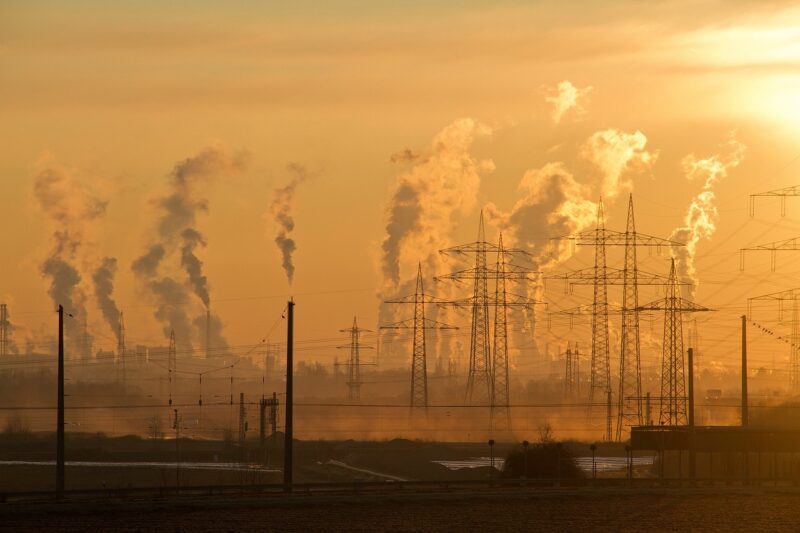Environmental Challenges We Face: How You Can Make a Difference
November 18, 2024

As we progress into the 21st century, the impacts of climate change have become increasingly evident. Environmental challenges are at the forefront of global discussions, as individuals, communities, and nations grapple with the implications of human activities on the planet. In this article, we will delve into the pressing environmental challenges we face today and explore practical steps you can take to make a significant difference.
1. The Climate Crisis: A Preview
The climate crisis, driven primarily by greenhouse gas emissions from human activities, continues to pose significant risks to global ecosystems and human health. Warming temperatures result in extreme weather events, such as hurricanes, floods, and droughts, wreaking havoc on communities and natural landscapes worldwide. According to the Intergovernmental Panel on Climate Change (IPCC), without immediate and sustained efforts to reduce carbon emissions, global temperatures could rise by 1.5 degrees Celsius or more by 2030, resulting in catastrophic consequences for our planet.
**Key Statistics:**
– The last decade (2010-2019) was the warmest on record.
– Global sea levels have risen approximately 8 inches since 1880, with projections of a rise of 1-8 feet by 2100 if emissions continue unabated.
2. Biodiversity Loss: The Silent Extinction
As urbanization, deforestation, and pollution accelerate, biodiversity loss becomes increasingly pronounced. Scientists estimate that species are going extinct at 1,000 times the natural rate due to human activity. This ongoing loss of biodiversity disrupts ecosystems, leads to a decrease in ecosystem services, and threatens food security.
**Ways Biodiversity Affects Us:**
– Healthy ecosystems provide essential services like pollination, water purification, and climate regulation.
– Many medicines are derived from natural sources; losing these species limits our ability to treat diseases effectively.
3. Water Scarcity: A Growing Crisis
With population growth and climate change exacerbating drought conditions, water scarcity is a significant issue worldwide. Currently, more than 2 billion people live in countries experiencing water stress, leading to conflicts over water resources and affecting agriculture, public health, and livelihoods.
**Impact of Water Scarcity:**
– Inadequate access to clean water leads to increased disease and mortality rates.
– Agriculture, which relies heavily on water, suffers, jeopardizing food security.
4. Plastic Pollution: The Ocean Crisis
Plastic pollution poses a grave threat to marine life and habitats. Approximately 8 million tons of plastic enter the oceans each year, harming wildlife, breaking down into microplastics, and ultimately entering the human food chain. The impact of plastic pollution reverberates through marine ecosystems, with some studies estimating that by 2050, there will be more plastic in the ocean than fish by weight.
**How Plastic Affects Marine Life:**
– Marine animals ingest plastic debris, mistaking it for food, which leads to injury or death.
– Toxins from plastics contaminate the water and organisms, affecting entire food webs.
5. Air Pollution: A Public Health Emergency
Air pollution is not just an environmental issue but a significant public health concern. Poor air quality caused by industrial emissions, vehicle exhaust, and burning fossil fuels leads to respiratory diseases, heart disease, and premature mortality. The World Health Organization estimates that air pollution contributes to approximately 7 million deaths each year.
**Immediate Effects of Air Pollution:**
– Increases hospital admissions due to asthma and other respiratory conditions.
– Long-term exposure can disrupt cardiovascular health and reduce life expectancy.
6. Practical Steps You Can Take
While these challenges may seem overwhelming, individual actions can create ripples of change. Here are some practical steps you can take to combat environmental issues:
**a. Reduce Your Carbon Footprint:**
– Opt for public transport, carpooling, or biking instead of driving alone.
– Reduce energy consumption by using energy-efficient appliances and turning off lights when not in use.
– Switch to renewable energy sources if available, such as solar or wind power.
**b. Support Biodiversity:**
– Participate in or donate to local conservation efforts and wildlife reserves.
– Choose sustainably sourced products and support local farmers who practice responsible land management.
**c. Conserve Water:**
– Implement rainwater harvesting systems for irrigation.
– Fix leaks and use water-saving fixtures at home to reduce waste.
**d. Combat Plastic Pollution:**
– Reduce single-use plastics by carrying reusable bags, bottles, and containers.
– Participate in local clean-up activities to remove plastic waste from natural spaces.
**e. Raise Awareness:**
– Educate friends and family about environmental issues and encourage them to take action.
– Use social media platforms to share information and inspire collective action within your community.
Conclusion: Making a Difference Together
The environmental challenges we face are formidable, but they are not insurmountable. Each individual’s efforts can contribute significantly to solving these pressing issues. By adopting sustainable practices, engaging in community initiatives, and spreading awareness, you are playing a critical role in protecting our planet for future generations.
It is crucial to remember that every action matters, no matter how small it might seem. Together, we can promote a healthier environment, preserve biodiversity, and ensure that future generations inherit a planet that thrives in harmony with nature. Join us in making a difference today!







